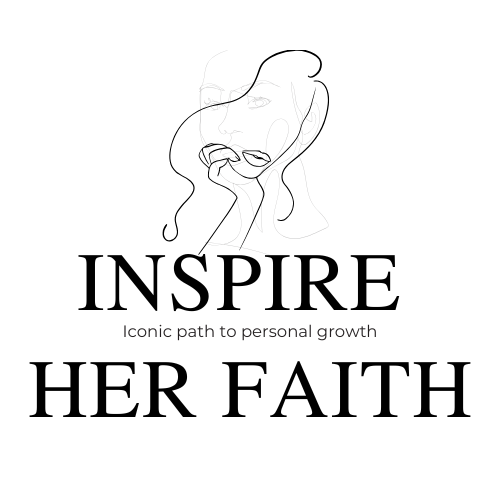Updated: February 25th 2025
Trauma, in its various forms, often leaves crazy marks on people. However, these experiences can also serve as catalysts for personal growth and success. By listening and applying the strengths developed through adversity, people can more effectively navigate life’s challenges and achieve remarkable accomplishments.
In this article, I will discuss the advantages of trauma in the hope that it will give you the strength to move forward and never give up on yourself. The journey is always far greater than the destination.
This is going to be a long article, as requested by one of you a little while back. Buckle up, grab your tea/coffee and your notes/journaling book, or save this article in your browser for easy access later. I will reveal my testimonial at the end of this article. To truly understand it and what it’s about, I encourage you to start reading from the beginning 👇
Detecting Deception: The Strength of the Betrayed
Experiencing betrayal, such as being lied to, can heighten your ability to discern dishonesty. This enhanced perception becomes invaluable in business, relationships, and friendships, allowing you to swiftly identify deception and misinformation. Insights like these, not only protect personal interests but also position you as a valuable asset in any social or professional setting.
Betrayal teaches us emotional resilience by forcing us to endure hurt, anger, and disappointment. Surviving it helps us handle future challenges with strength and grace. Each experience builds our ability to bounce back and move forward, making us stronger over time.
It also sharpens your intuition. Betrayal pushes you to notice behaviors and patterns we may have overlooked. This heightened awareness helps you identify dishonesty or manipulation in relationships, work, or business, guiding you to make better decisions.
Betrayal highlights the need for boundaries. It helps you protect your time, energy, and emotions by choosing who you allow into your life more carefully. Strong boundaries lead to healthier and more balanced relationships.
It also teaches self-reliance. Losing trust in others encourages you to take control of your life and decisions. This independence builds confidence and allows you to achieve goals without relying too much on external validation.
You gain a deeper understanding of human nature through betrayal. It shows people’s motivations and teaches you how to navigate relationships wisely. Reflecting on these lessons helps you make better choices and align your life with what truly matters.
Betrayal can also motivate you to succeed. The pain of betrayal often drives you to prove your strength—not to others, but to yourself. This focus helps you rebuild self-worth and achieve your goals.
Finally, betrayal inspires empathy. Experiencing hurt makes you more sensitive to others’ emotions. It helps you treat people with care and understanding, strengthening your relationships and emotional intelligence.
Embracing the Present: Lessons from Loss and Grief
Those who have faced loss and grief often develop a profound appreciation for the present moment. This heightened awareness leads to valuing people and experiences more deeply, fostering stronger connections and a mindful approach to life. Recognizing the fleeting nature of time, these people may also be more inclined to take calculated risks, understanding the preciousness of each moment.
Loss builds resilience. It pushes you to face unimaginable pain, yet you will survive. This process strengthens your ability to persevere, teaching you that no matter the difficulty, you can move forward. Resilience isn’t about avoiding pain, but about enduring it and growing through it.
Grief also brings gratitude and perspective. It reminds you how fragile life is, helping you appreciate what we still have. This awareness drives you to focus on what truly matters, living more intentionally and letting go of distractions that no longer serve you.
Through grief, you develop empathy. Suffering teaches you to understand others deeply. This emotional intelligence allows you to build stronger, more authentic relationships in both personal and professional settings.
Loss teaches you to adapt to change. Grief forces you to reevaluate your life and make adjustments, making you more open to change and new opportunities. You learn to accept life’s unpredictability and grow through it.
Grief also sparks personal growth. It encourages reflection, helping you reassess your choices and values. This clarity guides you to live more authentically and let go of what no longer serves you.
Many channels grief into creativity. Art, writing, or music becomes an outlet for emotions and leads to new passions. This process of expression can uncover hidden talents or even inspire new career paths.
Loss sharpens decision-making. Grief often forces difficult decisions about family, finances, or health. These experiences refine your ability to make informed choices, a crucial skill in life and work.
Loss helps you prioritize. It strips away the trivial and helps you focus on what truly matters. You spend your energy on meaningful pursuits, aligning your actions with your core values.
Grief also brings inner peace. Accepting loss helps you release the need for control, fostering a calm mindset. This peace allows you to face future challenges with clarity and strength.
Grief can transform pain into purpose. Many use their loss to help others or create positive change, turning grief into something meaningful. This transformation can lead to a greater sense of fulfillment.
Loss teaches the importance of legacy. It encourages us to think about the impact we want to leave. By living intentionally, we align our actions with our values and create a legacy that reflects who we are.
Through loss, you can gain strength, wisdom, and purpose. These lessons help you navigate life with grace and success. While grief is hard, it can transform you into a more resilient, insightful person.
Navigating PTSD: Turning Triggers into Tools
Post-Traumatic Stress Disorder (PTSD) can make life feel as though it’s unfolding in slow motion. While dissociation is a challenge, those with PTSD possess an intimate understanding of experiences that can be debilitating. This awareness of psychological triggers provides a unique perspective on human behavior, equipping people with the knowledge to manage their responses and even assist others in similar situations.
No matter how bad you think you’ve got it, always keep these words in mind:
“One can only achieve greatness after enduring pain. You have to die for a new version of yourself to emerge.”
“Belonging is not my priority. The older I get, the more I understand my purpose.”
“Grief strips away the superficial and shows us what truly matters in life.”
Wisdom to Remember:
“We are on this earth to learn, grow, experience, and serve humanity—not to worry about how we look.”
“Loss builds resilience. It teaches us that no matter how hard life gets, we can push through.”
Scroll further for more life changing quotes from this article that will keep you in your power
PTSD is a diagnosis that is activated based on your environment. I remember being diagnosed with PTSD at 15 after going to therapy for a couple of years. My guardians at the time couldn’t understand it; I seemed perfectly normal, never a troubled or difficult teenager. They sat me down at the dining table to discuss it with me, trying to make sense of it all. I acknowledged their concerns. Part of me also understood that they just didn’t want me to worry or to be put on any form of medication. I was indeed very aware at that age, and they did what they could to protect me from societal systems.
Obviously, I only write what I know and what I have experienced myself. All the content I write is based on a true story—my own life—and so far, I have only written 1% of it. PTSD is not a joke, so I’ll break down how this diagnosis has played a part in my life.
Around the people I grew up with, I developed this mental illness. The environment I was caught up in from around birth until I was 13 caused me severe PTSD attacks. When I changed my environment and lived alone from a young age (as a teenager), I noticed that my guardians were the complete opposite. I can’t remember a moment when I felt unsafe with them. There were a couple of times when a narcissist came into our lives and tried to destroy our relationship, but we managed to get through that hardship. Otherwise, God sent them my way to show me that PTSD only activates in the wrong environments, which triggers its core essence.
PTSD helps you recognize toxic environments, and your whole body will reject certain people, positions, and places. My PTSD “attacks” are not apparent in my life because God has cleared out everyone and everything that disturbs or triggers me. I know God is the One in control, so I can barely remember the last time I had a real mental breakdown due to PTSD. I view PTSD as a form of protection, and you can too. This diagnosis is not a joke, as mentioned, because when it is triggered, you might lose your mind for a while. Be sure to confide in trusted people, have your therapist on speed dial, and, most importantly, stay connected to God. PTSD can also be a great blessing, as it helps you manage your shortcomings with greater ease. You know how severe the attacks can get, so when you encounter obstacles or adversity, you won’t be as shocked or surprised because you know you’ve handled worse.
Anxious Attachment: Sensitivity as a Superpower
People with anxious attachment styles are often highly attuned to subtle changes in human behavior. This sensitivity enables them to detect minute shifts in tone, body language, or demeanor, allowing for timely interventions and support. Such perceptiveness is a powerful tool in building and maintaining healthy relationships, both personally and professionally.
Anxious attachment, often viewed as a vulnerability, can actually be a superpower when used wisely. People with this attachment style are highly sensitive to the emotions and behaviors of those around them, making them incredibly intuitive and empathetic. This heightened awareness allows them to pick up on subtle cues—such as changes in tone, body language, or energy—that others might overlook. In relationships, this sensitivity can help them become exceptional at understanding and meeting the needs of others, fostering deeper and more meaningful connections. By recognizing this strength and managing their emotional responses, they can turn what might feel like a weakness into a tool for building trust and rapport.
For example, in a workplace setting, someone with anxious attachment might notice that a colleague seems unusually quiet during a meeting. Instead of ignoring it, they could check in and offer support, demonstrating emotional intelligence and teamwork. This ability to tune in to others’ feelings can also make them excellent leaders, communicators, or negotiators. By pairing their natural attentiveness with self-regulation—learning not to let their worries overwhelm them—they can leverage their sensitivity to excel in both personal and professional situations, building strong, collaborative environments.
The Cautious Connector: Wisdom from Betrayal
Experiencing betrayal instills a deep understanding of trust’s value. As a result, people become more discerning in selecting their social circles, prioritizing genuine and supportive relationships. This selective approach safeguards emotional well-being and cultivates a network of trustworthy and meaningful connections.
Wisdom from betrayal helps us function better by teaching us how to build stronger, more meaningful connections. Betrayal reveals the importance of trust, boundaries, and authenticity in relationships. When someone betrays us, we learn to value loyalty and become more intentional about the people we allow into our lives. This wisdom helps us connect with others in healthier and more authentic ways, fostering relationships built on mutual respect and understanding.
Betrayal provides wisdom by giving us a deeper understanding of human behavior. It forces you to recognize red flags, patterns of manipulation, and subtle signs of dishonesty. With this awareness, we can approach new relationships with caution while still remaining open to connection. Additionally, betrayal teaches us the importance of forgiveness—not necessarily for the other person, but for our peace of mind. This ability to let go of resentment allows us to move forward and connect with others without carrying emotional baggage.
Post-Traumatic Growth: The Silver Lining
The concept of post-traumatic growth highlights how people can experience positive psychological changes following adversity. These changes often manifest as increased resilience, a renewed sense of purpose, and enhanced personal strength. By reframing trauma as an opportunity for growth, people can transform their pain into a driving force for success.
Post-traumatic growth (PTG) refers to the positive changes that can emerge after experiencing significant adversity or trauma. While trauma can shake us to our core, it often forces us to re-evaluate our values, priorities, and purpose. This process of growth can lead to newfound strength, resilience, and a deeper appreciation for life. PTG is not about minimizing pain but recognizing that growth and transformation can coexist with suffering.
One key aspect of PTG is gaining clarity about what truly matters. Trauma often strips away distractions, helping us focus on meaningful relationships, personal passions, and long-term goals. For example, someone who overcomes a difficult period might realize they want to pursue a career that aligns with their values or spend more time with loved ones. PTG can also enhance emotional resilience, making people more confident in their ability to handle future challenges. These shifts can lead to a life that feels more purposeful and aligned with who they truly are.
Real-Life Testimonies: Triumph Over Trauma
Numerous people have turned their traumatic experiences into steppingstones for success. For instance, Jessica Crane, who grew up in a challenging environment, became a successful entrepreneur by leveraging the resilience she developed during her upbringing.
No matter how bad you think you’ve got it, always keep these words in mind:
“You have to die for the new version of yourself to emerge.”
“Belonging is not my priority. The older I get, the more I understand my purpose.”
“Grief strips away the superficial and shows us what truly matters in life.”
A Gentle Reminder:
“We are on this earth to learn, grow, experience, and serve humanity—not to worry about how we look.”
“Loss builds resilience. It teaches us that no matter how hard life gets, we can push through.”
“Always remain humble, and never judge a book by its cover—there’s so much you may never see.”
My Testimonial
I’d also like to add myself to this list, if I may. My life story is complex and difficult to fully comprehend. I haven’t shared it in detail with anyone except my therapist a few years ago. A lot has changed since I went to therapy! So, she doesn´t know half of whats been going on since last time I checked in with her. Like many, we all face hardships; it’s part of life. However, our life journeys are unique to us. I’ve gone through everything mentioned above (and then some) and still managed to stay in my power.
Belonging is not my priority. As I grow older, I gain a deeper understanding of my purpose beyond simply worshipping Allah. I possess a strong drive and belief system that constantly pushes me gently toward my reality—or should I say, my delusion. It’s far from the norm. I’ve endured countless mental breakdowns as a result. I always pray for Allah´s comfort and ease along this painful journey. One can only achieve greatness after enduring this kind of pain. You have to “die” for a new version of yourself to emerge. Just like a snake sheds his skin. I’ve had to die repeatedly before finally awakening to my calling. It cost me EVERYTHING.
This is my platform, so I’ll be blunt with you: I’ve never been my true self with anyone close to me. Those moments I tried, they freaked out! So, I lower myself to their level to meet them where they are. But I don’t belong there, and it takes a toll on my mental health during those periods. This doesn’t mean I’m better than them—I say this with complete humility. It simply means we operate on different frequencies and realities, which is perfectly normal.
I’ve never felt comfortable showing them who I truly am because, at times, it frightened even me. I fear nothing—Allah is the only source of fear I have, and I believe He (SWT) wants to keep it that way. Don’t get me wrong, no one has ever harmed me. I don’t like to give others the privilege of thinking they’ve wronged me. Even in difficult moments, I use them as fuel to help myself to do better and to become better at serving humanity. For example, some people are meant to have children and a stable family life, but I was never built for that purpose. I have already reached this destination (my frequency level); it’s just a matter of time before I fully act upon it.
We live in the beautiful creation of Allah. The sooner you understand how life works and step into philosophy, self-development journey and so fort, the better you will come to understand who you are and your purpose, aside from worshipping Allah. Always remain humble and never judge a book by its cover—there are so many layers you may never get to see. Humans continue to fascinate me, and as a hypersensitive observer, I enjoy thinking beyond what’s necessary without expending energy. We are on this earth to learn, grow, experience, and serve humanity—not to worry about how we look. The latter is an idea inspired by a YouTuber named Farah. Just search her up on YouTube, and you’ll find her beautifully articulated and insightful videos on the platform.
I will update this article soon with more information in the PTSD section. Sooner rather than later, I will reveal some important truths that needs attention. This year will be different—in a positive way. However, before we can fully embrace the positivity and see the flowers bloom from the seeds, we must navigate through the nitty-gritty.
Thank you for reading this entire article. I hope it gave you a fresh perspective on your traumas and prepared you to tackle your next challenge. Remember, your future self has already overcome these hurdles. Just stay on the path and don’t look back. Keep moving forward! If you ever need advice, feel free to reach out to me at [email protected] for a free 1:1 coaching consultation. Yes, completely free of charge! Everyone in this community gets a one-hour consultation with me at no cost.
References
- Your Childhood Traumas Can Empower Your Future Success
- Understanding the Link Between Childhood Trauma and Entrepreneurship
- Post-traumatic growth
- I grew up on UK’s roughest estate now I’ve got millions in the bank, I’ve sacrificed being liked for being successful
- Business Insider
- The Sun
- Philosophy independent thinking



